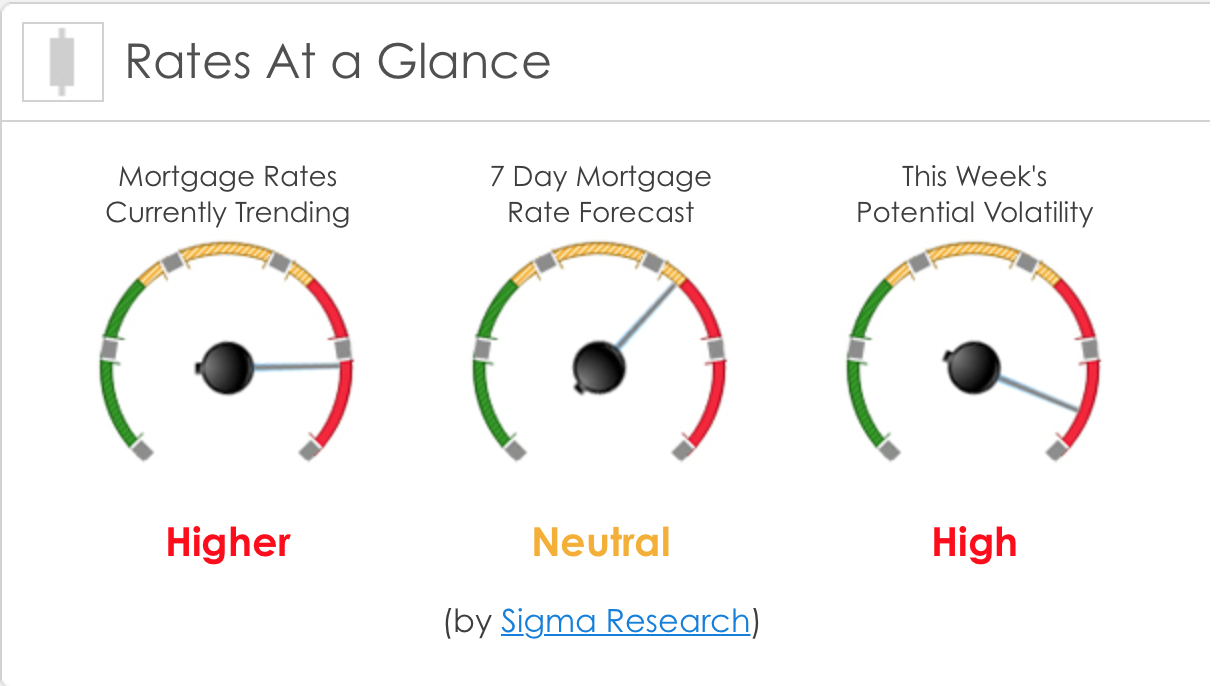Social Links Widget
Click here to edit the Social Media Links settings. This text will not be visible on the front end.
Don’t let Home-buying be a Challenge in Today’s Market
Pacific NW Homebuyers are challenged by the fast paced real estate market, this includes Seattle, Bellevue, Redmond, Kirkland and Eastside. Homebuyers are bidding on homes, many are bidding on 6 or more times and not being successful. It’s sad to say, without a great REALTOR, I’m not inflating anyone’s ego; there must be a plan to win in this market. Otherwise, many of them are wasting their time and energy, by bidding on these properties and spending money on inspections.
If a home looks good and is priced reasonably it will have multiple offers, it can go from list price to over $100k over list in a heartbeat. The key is to position yourself so you are patient and looking in the area that makes sense for your lifestyle and your budget. My clients have been fortunate to be successful in wining on the bidding process with the great attitude and plan. Don’t get me wrong we are not just walking in a property and winning, it takes a wining combination and if my clients are willing to participate then we have a great chance at getting them the home of their dreams in this market.
To discuss how Tom Fine can help get you into your home or sell your home to get you where you want to be, contact Tom Fine at tomfine@windermere.com , call or text, whichever is your preference at 206-434-6561.
Tom Fine works with Windermere Real Estate and is a real estate broker and a REALTOR and working in the Mercer Island office, a couple minutes from downtown Seattle, Washington. Serving Seattle and the Eastside market.
Buying a Home, What’s the Difference Between a Buyers Agent and a Listing Agent
Buying a Home: What’s the difference between a Listing Agent and a Buyers Agent and why should I care?
By law, a Designated Seller’s Agent MUST “promote the interests of the seller with the utmost good faith, loyalty and fidelity” and MUST “protect the seller’s confidences…” A smart seller will hire a good seller’s agent to work for them in this fashion – As they should.
Listing Agent, represents the sellers
Buyers agent, (Selling Agent) represents the buyers
Why should I use a buyer’s agent, (Broker)?
The seller’s agent is only looking out for the seller. Understanding this, it is important to realize that what you say and act to a seller’s agent may compromise your ability to negotiate the best deal for you. If, for example, during an open house, you casually mention to the seller’s agent that your family must be relocated by the end of the month to accommodate the start of a new job, the seller’s agent, by law, must “promote the interests of the seller” by letting the seller know about your situation. As a result, the seller is now aware that you are somewhat desperate and must move quickly, thus compromising your ability to negotiate the best deal.
How does this affect your bottom line?
Remember, the seller’s agent is “promoting the interests of the seller… and protecting the seller’s confidences…” Usually, the interests of the seller consist mainly in getting the best price for their home within a given time period. Even if the seller’s agent knows the seller has enough equity and is willing to accept $10,000 less than the asking price and, in fact, the home may not be worth what the seller is asking, the seller’s agent cannot, by law, disclose that information to you. Without a real estate professional working hard on your behalf by providing you with experienced and accurate market information, you may end up paying more than necessary to purchase that particular home.
What’s Next?
Working with Tom Fine, a Windermere Real Estate Broker, has in-depth experience in home construction, remodeling and design, with this Tom’s knowledge helps buyers by explaining the good and bad aspects of homes. Tom looks at the construction materials, installation and finishes of these materials and he’ll explain why a home you are looking at is what you see a well built home or a band aid to mask hidden problems. Working with Tom as a buyers agent doesn’t cost you money, the buyers agent fee is paid typically from the sellers side of the transaction. So why not work with someone like Tom, with knowledge and experience to save you, time, money and energy. Contact Tom Fine, today to help Buy or Sell your home,
Tom Fine, Broker, CNE & SRES
Fine Homes NW, Inc.
Windermere Real Estate, Mercer Island
Direct: 206-434-6561
Email: TomFine@windermere.com
Summer is Around the Corner, Real Estate Market in Seattle is Hot
In Seattle we have had an incredible year, with a mild winter and wonderful spring, we are getting ready for a great summer. Our Seattle summers are wonderful, with a calendar full of events from the Blue Angles, Hydroplanes, and concert series in and around the city. What a great place to be during the summer. My kids and I love to go to Madison Beach and dive off the floating dive platform and watching the big barges building the new massive 520 Bridge.
This weekend I was at my Wallingford open houses this weekend we had great activity. It is a 1929 brick Tudor that was custom built. It’s on the market, for a couple days at $685K hosting 4 bedrooms and 1-1/2 baths. What is great about a home like this is it hasn’t been renovated in bad taste and they didn’t do any bad updating.. The original mahogany millwork and the tilting windows make this a classic Seattle home.
This weekend I’ll be at the Braeburn hosting an open house that is a new listing. Prices continue to increase while the market is still a sellers market. It makes sense to get into the market now instead of seating out and waiting till things slow down. When the slow down, most likely form historical data, prices will be up 7% a year.
Interest rate’s at a glance, a lot of activity, the rates went form 3.81 to 3.8 last week.
Exciting news in Seattle, the Polar Pioneer in town and all the excitement around this massive oil drilling rig. It is in town and moored at Foss’s maritime dock for modifications that will bring 400 jobs to the area and a lot of money for suppliers and parts. It’s amazing people protesting in their kayaks, at least there won’t be much violence on the water from the protestors.
Cruise ships are in town and Pike Place market is busy with lots of people. We love getting a sandwich at Three Girls Bakery and then heading down for a Priroshky for one daughter. Don’t forget to visit the bubblegum wall.
Don’t Make Mistakes Selling Your Home
1. Not preparing to show your home in the right light. It’s critical to make sure when you are getting your home ready to sell that you put items in the right place. Don’t have too much clutter; arrange furniture so the rooms flow. If you don’t have the right furniture the best bet is to place staging in place of your furniture. Remember you are looking to get top dollar.
2.Doing a minor home improvement before selling might make sense.
If you have a ½ bath and have room to make it a ¾ bath to increase your selling price or a kitchen renovation to get more money, doesn’t that make sense? Yes! But don’t get carried away by doing too big of a renovation.
3. Not hiring an agent. So many people think they can do what an Agent/Broker can do. Are you willing to go through all the steps t get top dollar and then you don’t deal with an action in the right order or miss a timeframe that jeopardizes the deal, it’s critical that you have someone that can represent you to explain all the details. Studies have shown that hiring an Agent/Broker, you’ll get your money worth and it will eliminate a lot of headaches. Hire a professional to do a professional job.
4. Putting too high of a sale price. Wanting to get top dollar is everyone’s dream, but setting too high of a sale price can hurt in more than one way. It will keep the house on the market longer, the first two weeks is when your house sees a lot of action and people. When a house is on the market longer than a couple of weeks, then buyers believe they can get a bargain or low ball an offer. It’s key to get a BPO, (Brokers Price Opinion) this will provide an price with comps so you can make the right decision on the pricing.
5. Not hiring the right agent. You may have a friend or you see a truck that says “Use this truck for free when Moving, hire me” you get a postcard that says discounted fees or free staging. Do you want to think about discount people when selling your home? You want the right person and the one that thinks outside the box, has great opinions and options to sell your home.
6. Not exposing your home to the masses. When interviewing the agents, what is the agent going to do for marketing? Is she/he going to market to thousands of local agents, what about a Brokers open and open houses for the masses? Email marketing, Video tours on the Internet. Neighborhood mailer about the home. If the neighbors love the neighborhood, they’ll tell their friend about the great neighborhood, SOLD!
7. Putting restriction on the buyers, not letting buyers access the home. Some sellers, believe they know better than the agent, so they restrict the agent from showing the home, not allow agents market the home strategically. The right agents know how to go to market and know how to sell your home, let the professionals do their job.
8. Sellers should not be in the home while showing are happening. Several of my clients wanted to show the potential buyers their home, they felt they knew what to show buyers and they wanted to be there for the showings. This is a big No-No. Buyers and sellers should not be together, buyers want to feel free to talk about the house what they like and don’t like. They may want to do a remodel and the sellers can’t imagine why someone would want to change their home. The best scenario is to have the sellers out of the home during any showing and any open or brokers open. If they forget something, oh well they can come in after the showings. Believe you want top dollar, this will shoot them in the foot if they are there while a showing is going on.
These are the main items that can help get you on the right rack for positioning your home with the right agent, maximizing your return and getting maximum exposure. If you are in the Seattle and surrounding areas and you would like to discuss how we Tom Fine could help you, contact Tom today. Todays market is hot for sellers, positioning your home can potentially get more than market value. Have fun selling your home.
I love working with my clients!
November 5, 2014
To Whom it May Concern:
Tom Fine was our buyer’s agent for our recent home purchase in Green Lake, Seattle. We have decided to pen an unsolicited testimonial to his services.
Our family recently relocated from Australia to Seattle and decided to purchase a home. Luckily for us, we found Tom. Tom was able to explain the real estate market and buying and selling process in Seattle (which differs greatly from what we were used to in Australia). He was tireless in identifying properties that met our criteria and spent countless hours on the road with us explaining the positives and negatives of different localities, housing and building styles while viewing ‘open homes’. He was very flexible and understanding in his approach and his availability.
Tom’s knowledge gained as a building contractor was invaluable. He was able to walk through houses with us explaining potential benefits or pitfalls of the construction, layout, style, materials used and potential areas for improvement or maintenance. Several times he drew our attention to problems with construction that we would not otherwise have noticed.
In the end we found a house we wanted to make an offer for and Tom was able to calmly handle negotiations, helping to secure the house below the asking price in a highly competitive real estate market. He kept us in the loop every step of the way.
Subsequent to closing on the house, Tom has been happy to provide advice and expertise in relation to our plans to improve the property.
We’ve been impressed with Tom and would wholeheartedly recommend his services to others looking to buy or sell a home in Seattle.
Mark and Caroline Gordon
Green Lake, Seattle.
Understanding Closing on your New Home
So you are going to buy a home and you hear the word Closing, Title, Escrow, what does this mean to you and how does it affect you and the buying or selling of a property. Closing is also known as the settlement, the settlement of the property you are buying or selling. The settlement includes the accounting of the funds transferred between the two parties by the closing firm also known as the Escrow firm.
The funding source (Buyers Lender) will transfer funds from the lender to Escrow and Escrow will settle all debts associated with the property, such as the sellers mortgage, any utilities, taxes, and insurance or outstanding debts of the sellers associated with the property. The balance after the payoff is known as the capitol gains to the sellers.
Escrow will also transfer the needed funds for the buyer for insurance and taxes.
Escrow is the firm in which typically handles the settlement of the funds, transferring of the funds and coordinating the signing of all the documents by the buyers and sellers. Escrow protects all parties involved by making sure that no funds or properties change hands until all conditions in the agreement have been met.
Title, which is very important establishes who actually owns/owned the property and tracts whom has owned the property over the years. Title must be free and clear, this will make it a marketable title and must be free of any encumbrances (A clouded Title). A clouded title is a property that is not a marketable title (such as an easement issue, a lien against the property, or an encroachment on the property are just a couple of issues that could cloud the title and make the property not have a clear title, therefore should not be transferred to anyone else. Title was set up hundreds of years ago, when travelers where coming across the country and they needed to be reassured that the land/property they where buying was their property. Title was a way to guarantee that the property that they where buying was theirs and not someone else’s.
California or Seattle. Closing is explained in-depth at http://www.homeclosing101.org/index.cfm
and explains what Title is, what Title Insurance is and why you should have Title Insurance.
What is escrow?
Escrow will also transfer the needed funds for the buyer for insurance and taxes.
Escrow is the firm in which typically handles the settlement of the funds, transferring of the funds and coordinating the signing of all the documents by the buyers and sellers. Escrow protects all parties involved by making sure that no funds or properties change hands until all conditions in the agreement have been met.
Title, which is very important establishes who actually owns/owned the property and tracts whom has owned the property over the years. Title must be free and clear, this will make it a marketable title and must be free of any encumbrances (A clouded Title). A clouded title is a property that is not a marketable title (such as an easement issue, a lien against the property, or an encroachment on the property are just a couple of issues that could cloud the title and make the property not have a clear title, therefore should not be transferred to anyone else. Title was set up hundreds of years ago, when travelers where coming across the country and they needed to be reassured that the land/property they where buying was their property. Title was a way to guarantee that the property that they where buying was theirs and not someone else’s.
California or Seattle. Closing is explained in-depth at http://www.homeclosing101.org/index.cfm
and explains what Title is, what Title Insurance is and why you should have Title Insurance.
Great Video Called a Time-lapse Study
It is great when we run accross articles, videlo's or photo's of great substance or content. A photographer and director made this Timelapse video and I am fan of cideos like these.
Durring my contruction days, weeks, months well years, I loved to create timelapse photogtraphy. if shows so much in such a short time.
The Shard: A Timelapse Study – A Film by Paul Raftery and Dan Lowe
http://vimeo.com/portfoleo/theshard
Here is another Time-lapse video, about Vancouver
Thank you
Tom Fine
Contractor experience adds unmatched value in home-buying process
Realtors come from many different backgrounds—sales, IT, and consulting—to name a few. My experience as a former general contractor/builder is a huge advantage for my clients. Of all of the possible background for real estate sales, which experience brings the most to the client’s search, assessment, and negotiation process? I realize that I can’t be objective about this topic, but a former contractor’s knowledge of housing structure, materials, wear and tear, and renovation costs, are invaluable. My background in construction has been a priceless bonus for all of my clients. Allow me to illustrate…
Imagine yourself as a homebuyer walking into a home that is for sale. As your agent, I look around and identify some things in the house that concern me; the exterior siding has moss growing on it, the railing is a little loose and penetrating the wall. I move the railing screw around and feel that the area is rotted. Then I start to wonder….what else is wrong? — is there anything else that is not taken care of by the owners? I see other items that prompt me to suggest to you that we move on and look at other houses. If you loved the house, and all of its characteristics and layout, then I would let you know the problems that I saw. During an intense inspection, we would see in total, all that was uncovered.
Scenario #2, the buyers that I represent are looking at a condo, and they love the view. I look around and make notes on my iPad. After a walk-through, I ask my clients what they think of the condo. They like it. We look at the storage area—it smells moldy and musty. As we tour the mechanical room, we uncover a room that houses a sauna and a hot tub—both are decommissioned by the HOA (Homeowners Association.) This is a HUGE red flag; #1, the association has a moldy, smelling, storage area, and # 2 the hot tub and sauna are decommissioned by the HOA. This tells me that although significant dues are collected from each unit, the community facilities are not being maintained properly. What else is not being maintained? When we go outside, I see more items that concern me—the wooden soffits appear to have some deterioration issues. The exterior also needs attention, and my estimate is that this is a $250K improvement project.
Scenario #3, my buyers and I go to the next condo. It’s great! I mean…the view is fantastic! It has a great view of the water, but as I walk through the unit and into the hallway, I feel like a drunken sailor. The floor in the condo is not level. After a complete tour, my opinion is that the unit is OK, but nothing to write home about…..but THE VIEW–did I mention the view?! The place also has a pool and sauna, and is within walking distance of many local restaurants and shops. Later, I step into the hall to look for the mechanical room and meet a couple who live in the building. We talk briefly about the building, the maintenance, and some general comments they have about the place. They are very nice, and forthcoming, and I learn something about the condo board. It consists of residents that have been there for many years and they don’t like to spend money on maintenance or capital improvements, so the north side of the building is about eight years overdue for siding replacement. The decking around the pool also needs maintenance. The kind couple also inform me that one condo owner recently requested to make some changes to their unit — requiring board approval — and were turned down. What about that great view?! A difficult HOA board is a potential deal-breaker — even if you inherit the property.
Scenario #4, my clients who are first-time buyers and newlyweds want to buy a rambler that just came on the market. It is in a great part of town, and the yard is gorgeous. I walk in and notice that the owners renovated it poorly. The floor plan was modified and it does not flow right. In the basement, the drain/sewer was exposed and a temporary fix-it job was botched—someone tied into the wrong plumbing fittings. What else did they do wrong? (I say to myself) I look in the attic and find evidence of a fire years ago and also find more signs of poor renovations and framing issues. I analyze these items and feel there are too many issues to consider this house as a viable property. My buyers really want the property, but I feel an obligation to explain all the issues that I see. Regardless, they feel that all the problems were things that they could fix. I appreciated their enthusiasm, and of course I would like to make the offer and sale, but I want to be honest with them about how much it would cost—it would take a deep pocketbook. They are so serious about the place and as much as I dislike being pessimist, I ask them to give me a few minutes to put together a rough estimate as to what it would take to do the repairs and make the place right. The total renovation and correction costs are enormous, and when I review the rough estimate with them, they realize that buying that home would be a mistake. That property sold for 10% over the listing price and I know the new buyers did not have someone with my experience in their corner. I am sorry for them and others like them.
I could have sold these properties to my clients, but not with a clear conscience. I choose to create a long-term relationship with them and be the kind of agent that I would want for my own family. I can feel good about my service to clients when I work hard for their trust and confidence and provide them the information that they need. After all, it is probably the biggest ticket item they will ever purchase. Beyond making a sale, and a commission, I want to feel good about helping clients make good choices and build a solid future. Sound construction and renovation counsel is a customer-service bonus for my clients. How many real estate agents can offer this invaluable home-buyer service at no extra cost?
Tom Fine | Broker | Windermere Real Estate Capitol Hill
SRES and CNE Certified
Senior Real Estate Specialist and Certified Negotiation Expert
How long do things last in your home?
The life span of your household components
 Nothing in life lasts forever – and the same can be said for your home. From the roof to the furnace, every component of your home has a life span, so it’s a good idea to know approximately how many years of service you can expect from them. This information can help when buying or selling your home, budgeting for improvements, and deciding between repairing or replacing when problems arise.
Nothing in life lasts forever – and the same can be said for your home. From the roof to the furnace, every component of your home has a life span, so it’s a good idea to know approximately how many years of service you can expect from them. This information can help when buying or selling your home, budgeting for improvements, and deciding between repairing or replacing when problems arise.
According to a National Association of Home Builders (NAHB) study, the average life expectancy of some home components has decreased over the past few decades. (This might explain why you’re on your third washing machine while Grandma still has the same indestructible model you remember from childhood.) But the good news is the life span of many other items has actually increased in recent years.
Here’s a look at the average life spans of some common home components (courtesy of NAHB).
Appliances. Of all home components, appliances have the widest variation in life spans. These are averages for all brands and models, and may represent the point which replacing is more cost-effective than repairing. Among major appliances, gas ranges have the longest life expectancy, at about 15 years. Electric ranges, standard-size refrigerators, and clothes dryers last about 13 years, while garbage disposals grind away for about 10 years. Dishwashers, microwave ovens, and mini-refrigerators can all be expected to last about nine years. For furnaces, expect a life span of about 15 years for electric, 18 for gas, and 20 for oil-burning models. Central air-conditioning systems generally beat the heat for 10 to 15 years.
Kitchen & Bath. Countertops of wood, tile, and natural stone will last a lifetime, while cultured marble will last about 20 years. The life span of laminate countertops depends greatly on use and can be 20 years or longer. Kitchen faucets generally last about 15 years. An enamel-coated steel sink will last five to 10 years; stainless will last at least 30 years; and slate, granite, soapstone, and copper should endure 100 years or longer. Toilets, on average, can serve at least 50 years (parts such as the flush assembly and seat will likely need replacing), and bathroom faucets tend to last about 20 years.
Flooring. Natural flooring materials provide longevity as well as beauty: Wood, marble, slate, and granite should all last 100 years or longer, and tile, 74 to 100 years. Laminate products will survive 15 to 25 years, linoleum about 25 years, and vinyl should endure for about 50 years. Carpet will last eight to 10 years on average, depending on use and maintenance.
Siding, Roofing, Windows. Brick siding normally lasts 100 years or longer, aluminum siding about 80 years, and stucco about 25 years. The life span of wood siding varies dramatically – anywhere from 10 to 100 years – depending on the climate and level of maintenance. For roofs, slate or tile will last about 50 years, wood shingles can endure 25 to 30 years, metal will last about 25 years, and asphalts got you covered for about 20 years. Unclad wood windows will last 30 years or longer, aluminum will last 15 to 20 years, and vinyl windows should keep their seals for 15 to 20 years.
Of course, none of these averages matter if you have a roof that was improperly installed or a dishwasher that was a lemon right off the assembly line. In these cases, early replacement may be the best choice. Conversely, many household components will last longer than you need them to, as we often replace fully functional items for cosmetic reasons, out of a desire for more modern features, or as a part of a quest to be more energy efficient.
Are extended warranties warranted?
Extended warranties, also known as service contracts or service agreements, are sold for all types of household items, from appliances to electronics. They cover service calls and repairs for a specified time beyond the manufacturer’s standard warranty. Essentially, warranty providers (manufacturers, retailers, and outside companies) are betting that a product will be problem-free in the first years of operation, while the consumer who purchases a warranty is betting against reliability.
Warranty providers make a lot of money on extended warranties, and Consumers Union, which publishes Consumer Reports, advises against purchasing them. You will have to consider whether the cost is worth it to you; for some, it brings a much needed peace of mind when making such a large purchase. Also, consider if it the cost outweighs the value of the item; in some cases it may be less expensive to just replace a broken appliance than pay for insurance or a warranty.
Posted in Buying by Tara Sharp
Tom fine Is a Reealtor with Windermere Real Estate Capitol Hill in Seattle Washington, Helping Byers adn Sellers "Making Home Ownership Easy" Fine Homes NW, Inc.
 Facebook
Facebook
 Twitter
Twitter
 Pinterest
Pinterest
 Copy Link
Copy Link






